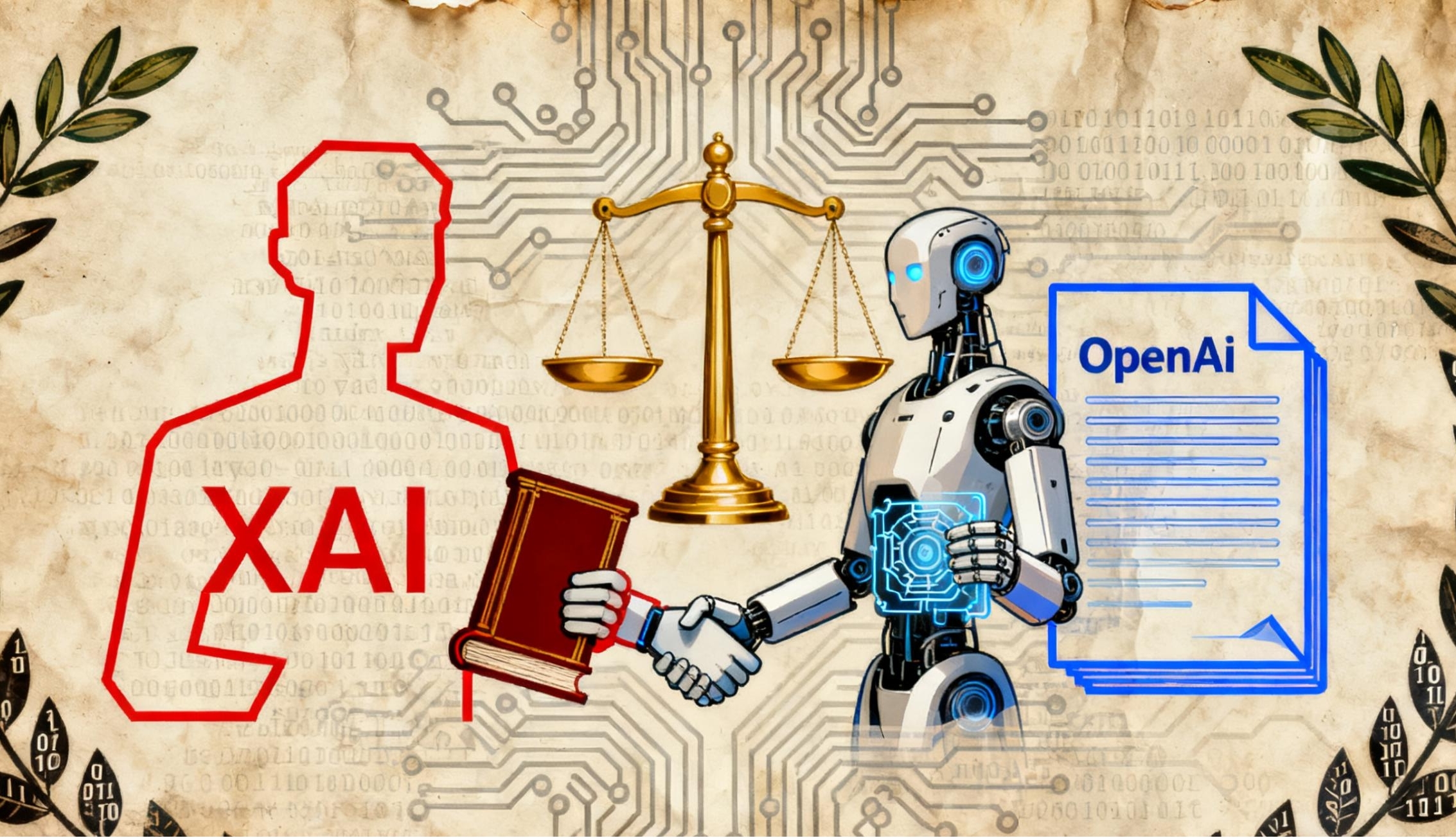
When xAI took OpenAI to a federal court in California, accusing it of stealing trade secrets by poaching employees, this lawsuit had long transcended the scope of a single corporate dispute and became a typical footnote to the collision of technological competition and ethical boundaries in the AI industry. From the core engineer's "defection" with the code base to the intense offensive and defensive battles between the two sides, the industry pain points reflected by the incident are far more worthy of deep reflection than the lawsuit itself.
The trigger of this legal battle was the departure of Xuechen Li, a former core engineer at xAI. As an early team member with a Ph.D. from Stanford, Li was deeply involved in the development of xAI's flagship product Grok and was granted access to the entire technology stack. After cashing out nearly 7 million US dollars worth of equity, on the eve of his departure, he transferred the entire codebase to his personal storage system through covert means such as deleting logs and compressing files, and then confirmed his joining of OpenAI. What is even more intriguing is that xAI's accusation is not an isolated case. OpenAI poached eight core employees through an organized plan, including Jimmy Frazure, an engineer who copied source code, and a senior financial executive who held the secrets of data center deployment.
In the complaint, xAI emphasized that what was stolen was not only the code but also the core competitiveness that "could save billions of dollars in research and development costs and years of engineering efforts." In the field of generative AI, the value of training data and model architecture is comparable to the core formulas in traditional industries, and the operational experience of data centers directly determines the efficiency of technology implementation. Musk said straightforwardly that these secrets are like "nuclear weapons" to competitors, sufficient to build an insurmountable competitive advantage. This accusation precisely hits the core contradiction in the AI industry: technological iteration relies on talent mobility, but the protection of core secrets lacks clear boundaries.
In the face of accusations, OpenAI's response can be regarded as a model of a tough counterattack. Not only did it deny all the accusations of espionage, but it also characterized the lawsuit as "the latest chapter of Musk's ongoing harassment", claiming that the purpose of the lawsuit was to intimidate departing employees and prevent the flow of talent. In the defense document, OpenAI put forward three core defenses: The employee's departure was due to disappointment with the work intensity and prospects of xAI, and the recruitment process was completely legal; There is no evidence that any xAI secrets have been actually used. Musk's series of lawsuits are essentially public opinion tools to suppress his competitors. This offensive and defensive situation highlights the deep-seated grudges between the two sides - since 2024, Musk has filed five lawsuits against OpenAI, covering multiple disputes such as mission divergence and monopolistic cooperation.
The legal difficulties of the incident are closely related to the industry characteristics. As a core area of the technology industry, California has completely banned employment restrictions, which means that enterprises cannot prevent employees from moving to competitors through contracts. Against this backdrop, the distinction between "poaching" and "stealing secrets" becomes crucial: enterprises have the right to compete for talents, but they have no right to obtain the business secrets of their former employers attached to the talents. Although Xuechen Li has admitted to the act of stealing secrets, he refused to provide the whereabouts of the data on the grounds of "not remembering" the password, which has led to a deadlock in the evidence collection - xAI needs to prove that OpenAI actually obtained and used the secrets, rather than just receiving them from the employees themselves.
This dispute serves as a profound warning for the AI industry. Under the pressure of technological competition, some enterprises regard "poaching with secrets" as a shortcut, but neglect the long-term health of the industry ecosystem. If the act of stealing secrets is not restrained, enterprises may fall into a vicious cycle of "research and development - loss - re-research and development", ultimately suppressing the impetus for innovation. What is even more alarming is that the disorderly flow of core technologies may bring security risks, especially the code leakage of generative AI may be used for the development of malicious applications.
From a broader perspective, behind the lawsuit lies the reality of the lack of rules in the AI industry. At present, there is no unified global standard for technology confidentiality and talent mobility. Enterprises can only rely on individual lawsuits to define boundaries. This confrontation between xAI and OpenAI may prompt the industry to establish clearer ethical guidelines - ensuring the reasonable flow rights of talents while clearly defining the red line for protecting business secrets.
The "palace intrigue drama" in the AI industry is still ongoing. The verdict will not only determine the fates of the two enterprises, but also set a benchmark for the competitive landscape of the global AI industry. When the pace of technological innovation far outpaces the speed of rule-building, how to strike a balance between encouraging competition and protecting innovation might be a more thought-provoking proposition for the industry than code and talent.

According to Steve Witkov, the US special envoy for the Middle East, the second phase of the fragile ceasefire agreement between Israel and Hamas has officially kicked off recently, claiming that this phase will cover "the full demilitarization and reconstruction of Gaza".
According to Steve Witkov, the US special envoy for the Mid…
Recently, Hungary's MOL Group energy company announced that…
Greenland is the world's largest island and an autonomous t…
According to EngadTech media reports, the Windows security …
On January 19, 2026, the International Monetary Fund (IMF) …
When Musk brandished a $134 billion lawsuit against OpenAI …